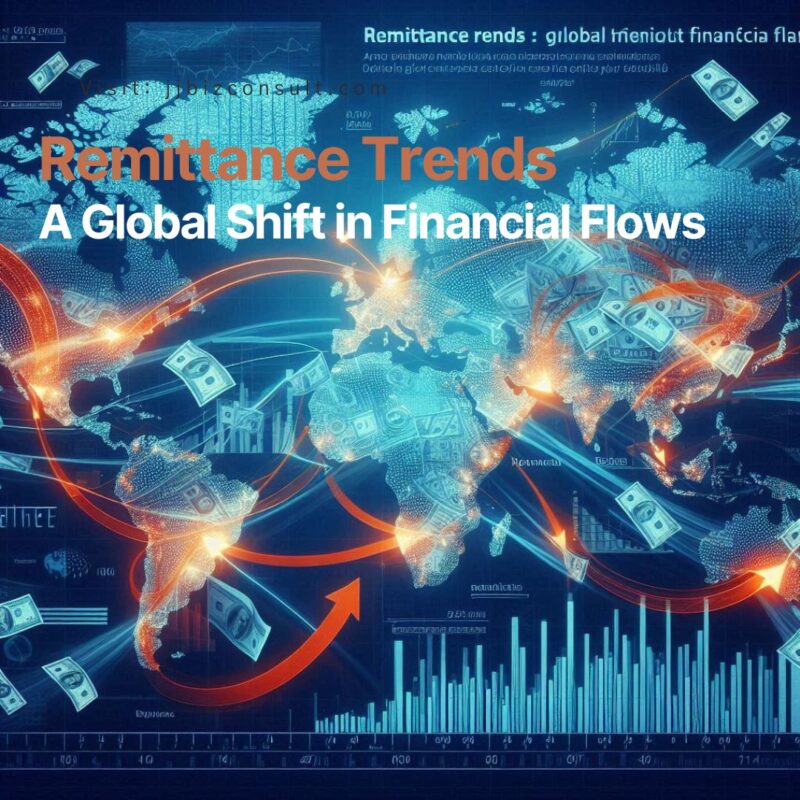Remittance Trends: A Global Shift in Financial Flows

Remittance Trends: The global financial landscape is undergoing a significant transformation, and remittances play a pivotal role in this evolution. According to the World Bank’s data published in the International Organization for Migration’s (IOM) 2024 World Migration Report, remittances to low- and middle-income countries (LMICs) surpassed foreign direct investment (FDI) for the first time in 2022. This historical trend highlights the increasing importance of migrant workers in supporting their home economies.
Remittance Trends: Remittances on the Rise

Remittances, defined as money sent from workers living abroad to their home countries, have experienced steady growth over the past few decades. In 1990, total global remittances amounted to $68 billion. By 2022, this figure had skyrocketed to a staggering $791 billion. LMICs were the primary beneficiaries, receiving a significant portion ($614 billion) of these inflows.
Outpacing Traditional Aid
 You will find more infographics at Statista
You will find more infographics at Statista
This surge in remittances isn’t a recent phenomenon. Since the mid-1990s, remittance flows have consistently outpaced Official Development Assistance (ODA), which is government aid designed to support developing countries. This shift underscores the growing reliance on migrant workers as a vital source of economic development for LMICs.
Remittance Trends: The Underestimated Impact
While the World Bank’s data provides valuable insights, it likely underestimates the true impact of remittances. The IOM report acknowledges that official figures don’t capture unrecorded flows of money sent through informal channels. This suggests that the actual contribution of remittances to LMICs could be even higher than reported.
India: Leading the Way
 You will find more infographics at Statista
You will find more infographics at Statista
India stands out as the world’s leading recipient of international remittances. In 2022, it became the first country ever to surpass the $100 billion mark, solidifying its position as a global powerhouse in receiving these vital financial resources. Mexico ($61.1 billion) and the Philippines ($38 billion) followed India in the top three recipient countries.
Understanding Labor Migration Patterns
Not all remittance inflows represent household transfers. For instance, the high rankings of France and Germany (4th and 10th, respectively) are partly due to “salaries of cross-border workers who work in Switzerland while residing in France or Germany,” as highlighted by the IOM report. Recognizing these nuances helps us understand the complex dynamics of labor migration and its impact on global financial flows.
Future Prospects and Challenges
The rising importance of remittances presents both opportunities and challenges for LMICs. These financial resources can support families, fuel local economies, and promote development. However, challenges remain. Ensuring efficient and low-cost transfer mechanisms, promoting financial inclusion for remittance recipients, and addressing potential brain drain from LMICs are crucial considerations moving forward.
Remittance Trends: More Statistics on Remittances

Let’s dive into some additional statistics on Remittance Trends:
- Global Remittance Flow Value:
- In 2022, the value of remittances worldwide amounted to an estimated 830 billion U.S. dollars. This impressive figure is expected to reach 858 billion U.S. dollars by 2024.
- Annual Growth Trends:
- Global remittances have been rising yearly since 2016, except for a dip in 2020 due to the pandemic. The trend shows steady growth from $591 billion in 2016 to $860 billion in 2023, with a forecast of $887 billion for 2024.
- US Digital Remittance Market:
- The US digital remittance market size is projected to grow significantly. By 2032, it is estimated to reach around $13.50 billion, experiencing a compound growth rate of 15.1% from 2023 to 2032.
These statistics highlight the increasing importance of remittances in the global financial landscape. If you need further details or have any other requests, feel free to ask! 😊

Conclusion
The ascendancy of remittances as a primary source of financial support for LMICs reflects a changing global landscape. By acknowledging the contributions of migrant workers and fostering smoother remittance flows, policymakers and development organizations can harness the power of these financial resources for a brighter future.
Consumer Trends 2024: How to Leverage Megatrends
Social Media Marketing Trends 2024: A Review of the Essential Guide to Stay Ahead of the Curve




